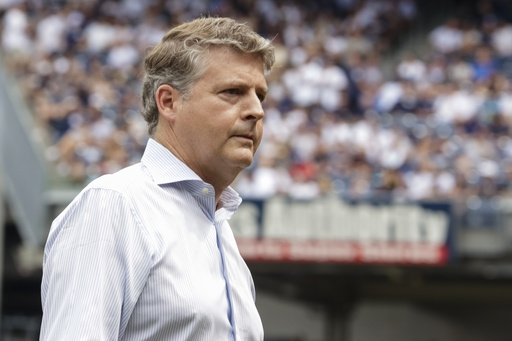
TAMPA, Fla. — Hal Steinbrenner, the owner of the New York Yankees, has expressed a willingness to consider a salary cap in Major League Baseball, contingent upon the inclusion of a minimum payroll requirement.
Steinbrenner stated, “I have been clear before that I would think about supporting a cap based on what the specific limits are and as long as there is also a spending floor. This would ensure that teams which I believe are underinvesting in player salaries would be compelled to allocate more funds.”
Historically, the Yankees boasted the highest payroll in Major League Baseball for 15 consecutive years until 2013, but they have not retained that title since then.
Unlike other major U.S. professional sports leagues, MLB has yet to implement a salary cap, although it has enforced a luxury tax since 2003.
In a related development, David Rubenstein, the new owner of the Baltimore Orioles, indicated his support for the idea of a salary cap back in January.
Negotiations for a new agreement set to replace the existing five-year collective bargaining agreement with the Major League Baseball Players Association are expected to commence in about a year, as the current agreement expires in December 2026.
Tony Clark, the head of the players’ association, remarked, “During the last negotiation, we proposed methods to tackle the current concerns, but our suggestions were met with resistance at every instance, all without imposing new limitations on the system.”
The history of a salary cap proposal includes a drawn-out 7.5-month strike that resulted in the cancellation of the 1994 World Series and disruptions to two seasons.
MLB Commissioner Rob Manfred acknowledged this week, “I have owners with strongly held opinions that I need to unify before we approach the MLBPA. I believe that initiating this discussion in public is not the best approach. Whatever we agree upon will be addressed during the collective bargaining negotiations, and we aim to handle it privately with the MLBPA.”
The Yankees have paid luxury tax in 20 of the 22 seasons since the tax was introduced, accruing a total of $452 million, while the Los Angeles Dodgers follow with $350 million, which includes $200 million from the past four years.
Under the ownership of Steve Cohen, the New York Mets have incurred $229 million in luxury tax over the last three years, a stark contrast to the years under the previous Wilpon and Katz administrations, which never reached the luxury tax threshold.
Steinbrenner defended the Yankees’ allocations, revealing that the team’s payroll for this year is projected at approximately $307 million, comparable to last year’s figures.
The increased spending by the Dodgers and Mets in recent times has reignited conversations around payroll inequalities and the potential for a salary cap.
“The financial figures are evidently larger now,” Manfred commented. “The Dodgers’ expenditures are likely to yield greater profits as a percentage compared to what the Yankees used to generate, making it a more sustainable issue. Ultimately, this is at the heart of the challenges within our economic structure, specifically the disparity in resources that affects competitive balance in the league.”

